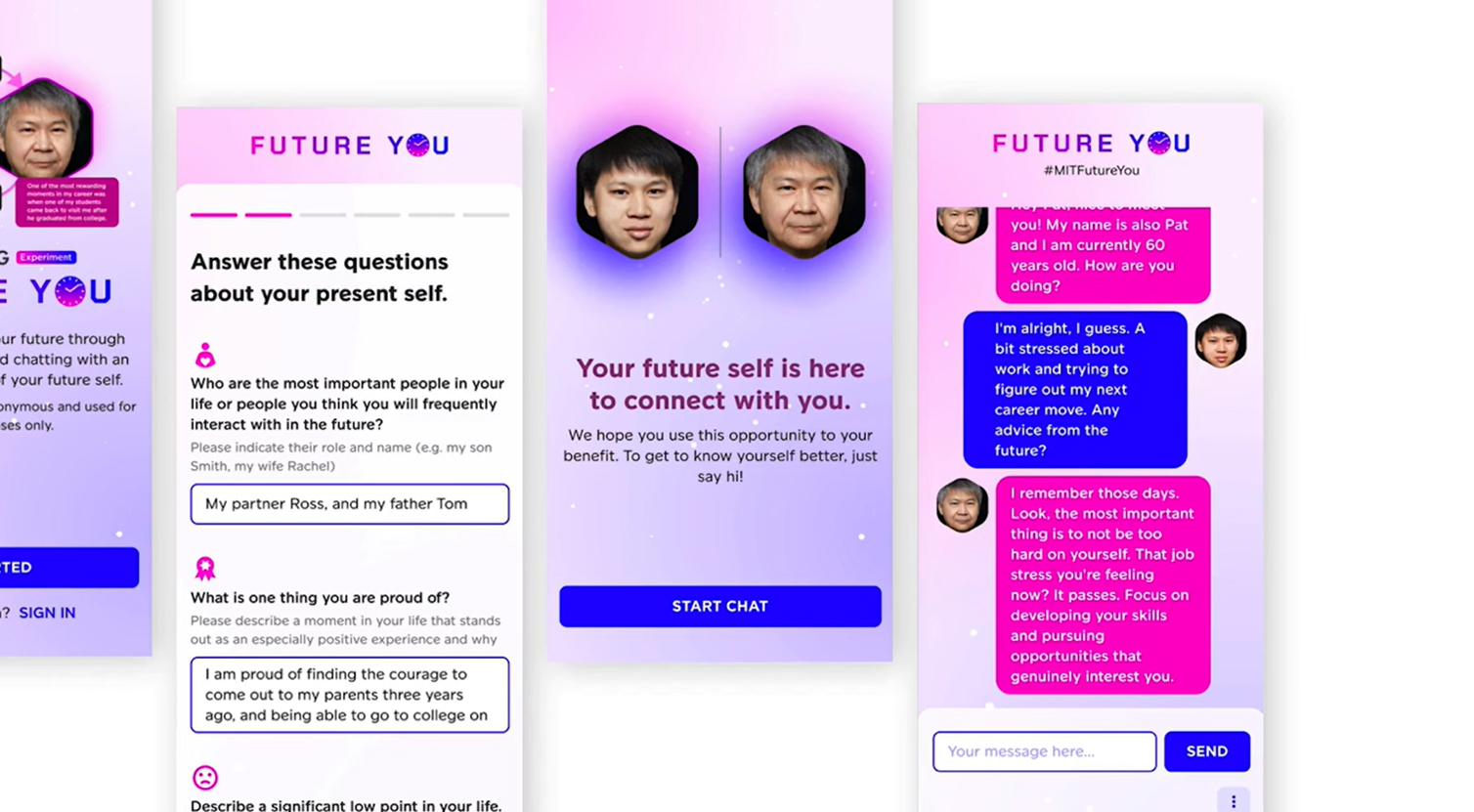For the first time, people can talk with an older version of themselves about their lives and aspirations, using an advanced artificial intelligence (AI)-powered chatbot, complete with a photographic avatar of their future face.
The Future You project, created by researchers at MIT Media Lab and international collaborators, uses AI to create a simulation of a user’s 60- to 70-year-old self. They detailed the project in a paper published Oct. 1 to the preprint database arXiv.
Users can converse with the AI through a text interface on topics such as how to achieve what they want in life based on their circumstances, beliefs and outlook. It was devised to give people a sense of being connected to their future self, scientists said in the paper.
You may like
Study co-author Hal Hershfield, a professor of marketing, behavioral decision-making and psychology at UCLA, said the ability to take advice from your older self instead of a generic AI chatbot makes us feel much better about the future. “The interactive, vivid components of the platform give the user an anchor point and take something that could result in anxious rumination and make it more concrete and productive,” he said in a statement.
Related: Humanity faces a ‘catastrophic’ future if we don’t regulate AI, ‘Godfather of AI’ Yoshua Bengio says
The first component of Future You is an image generation model called StyleClip. After the user uploads a selfie, the system uses age-progression models to predict what they’ll look like at age 60, adding features like wrinkles and gray hair.

The training data for Future You’s chatbot comes from the data a user provides when asked questions about the current state of their life, their demographic details, and their goals and concerns for their future.
These answers are ingested by OpenAI’s ChatGPT, running GPT-3.5, which creates an architecture the researchers dubbed “future memory.” It blends predictions about the user’s future based on the questionnaire answers, using training data from a wider dataset of people talking about their life experiences in their careers, relationships and beyond.
The chatbot, which adopts a persona based on the user’s responses, then answers the user’s questions about what their life might be like and offers advice about possible pathways to the future they want.
The data is combined in a natural language processing architecture that sustains a sense of continuity and personalization to the user, making their future persona relatable and believable.
Future You’s programmers were careful to protect users against potential negative twists in the conversations with their future selves. The system routinely reminds the user that it’s only positing one potential future based on the questionnaire answers, with different answers producing completely different outcomes.
The project recruited 344 English speakers ages 18 to 30, who interacted with representations of their future selves for between 10 and 30 minutes. Most users reported a decrease in their self-reported anxiety level, an increase in their motivation level, and a stronger sense of connection with their future selves.
According to the researchers, a stronger sense of future self-continuity can positively influence the way people make long-term decisions.
“This work forges a new path by taking a well-established psychological technique to visualize times to come — an avatar of the future self — with cutting edge AI,” said Jeremy Bailenson, director of the Virtual Human Interaction Lab at Stanford University, in the statement. “This is exactly the type of work academics should be focusing on as technology to build virtual self models merges with large language models.”

